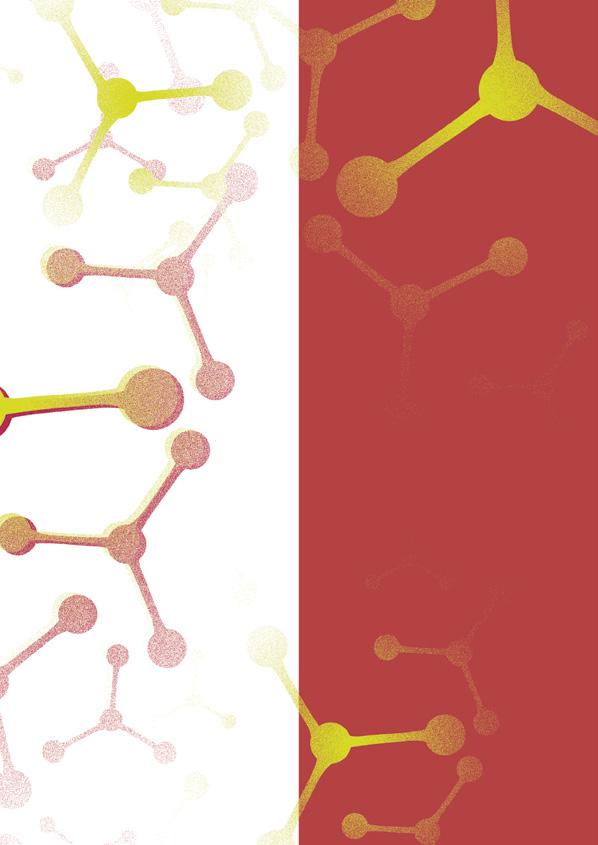
2 minute read
Finding the Genes
A decade of progress thanks to the Peanut Genome Initiative.
Ten years ago, The Peanut Research Foundation (TPRF) embarked on a groundbreaking endeavor known as the Peanut Genome Initiative. The objective was to acquire new insights into the genetic features of peanuts, with the ultimate goal of facilitating more efficient breeding programs. Now, after a decade of dedicated research, the publication of over 150 papers, and numerous domestic and international conferences, the foundation presents a comprehensive report on the achieved results and paves the way for a new chapter of research.
In 2003, the sequencing of the human genome paved the way for studying the genomes of other organisms, offering tremendous potential applications, including crop production. Several years later, TPRF initiated the first phase of the initiative and successfully raised six million dollars, making it the “largest research project ever funded by our industry”, as stated in the report. The costs were shared equally among growers, sellers and manufacturers.
The first phase, from 2013 to 2017, resulted in the sequencing of the genome of the wild diploid peanut parents in 2016. This groundbreaking achievement was published in the esteemed journal Nature Genetics. The second phase, the Peanut Genome Initiative II, successfully carried the program forward, culminating in the publication of the cultivated peanut genome sequences in the same journal in 2019.
The initiative has yielded invaluable knowledge across various fronts, with the most significant impact on the peanut sector likely being its ability to identify the genetic basis for peanut traits. This breakthrough provides an essential tool for breeders, enabling them to design programs more efficiently and rapidly through the utilization of genetic markers.
A noteworthy aspect of this research lies in its inclusivity. The genetic markers and other research findings are freely accessible on the website peanutbase.org, which has emerged as a central resource for geneticists, breeders and peanut researchers worldwide. The initiative has also rapidly evolved into an international collaborative effort, with the establishment of the International Peanut Genome Initiative Executive Committee. This committee has provided valuable guidance and direction to the project, fostering participation from organizations in the United States, Brazil, Argentina, China, India, Israel, Japan and Australia.
Markers
A genetic marker refers to specific segments of the genome that can be linked to particular traits, such as a plant's disease resistance or kernel size. By analyzing the DNA of a particular variety, it is possible to identify the presence of genes responsible for the desired trait, thereby greatly expediting the breeding process. Marker-Assisted Selection (MAS) has emerged as an invaluable and potent tool for peanut breeders, facilitating their work and enhancing outcomes. Many genetic markers have been identified within the program.
_ Aflatoxin resistance
_ Arachidic acid content
_ Behenic acid content
_ Early leaf spot resistance
_ Gadoleic acid content
_ Late leaf spot resistance
_ Lignoceric acid content
_ Linoleic acid content
_ Oleic acid content
_ Palmitic acid content
_ Pod weight
_ Rood knot nematode resistance
_ Rust resistance
_ Saturated fatty acid
_ Sclerotinia resistance
_ Seed weight
_ Stearic acid content
_ Tomato spotted wilt virus resistance
_ Unsaturated fatty acid content
_ White mold resistance
_ Smut resistance








